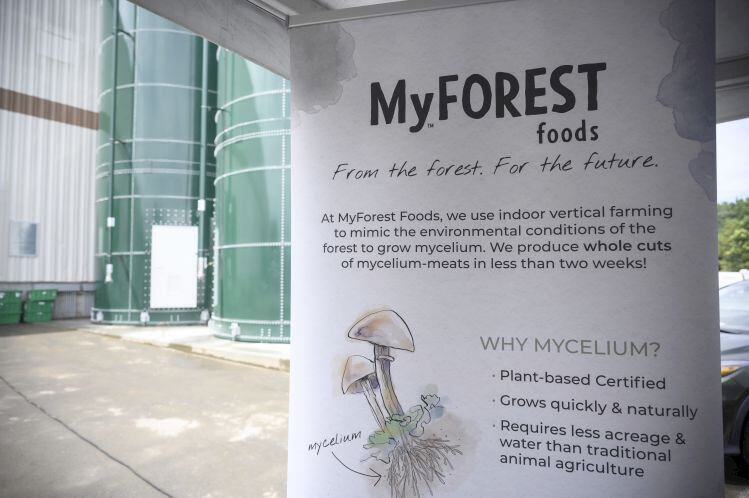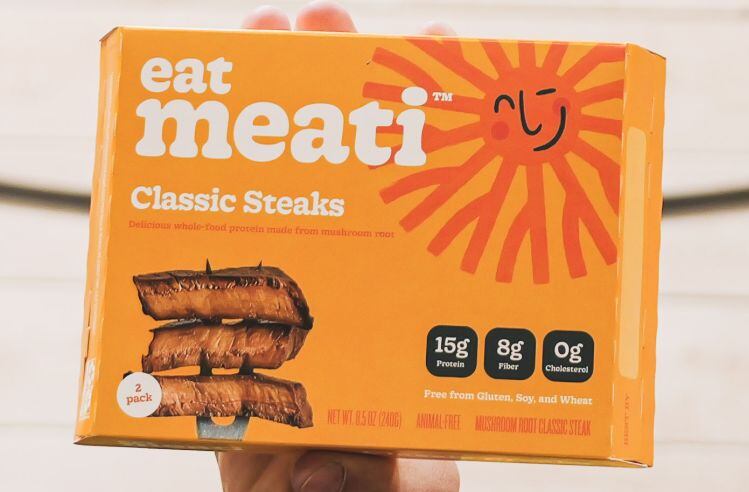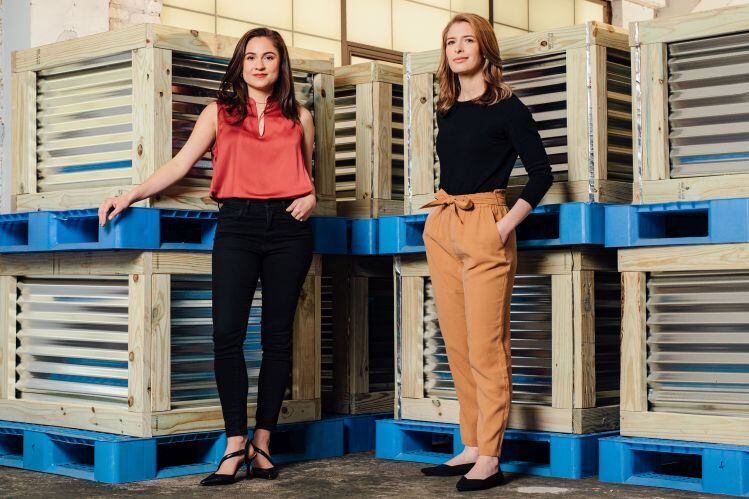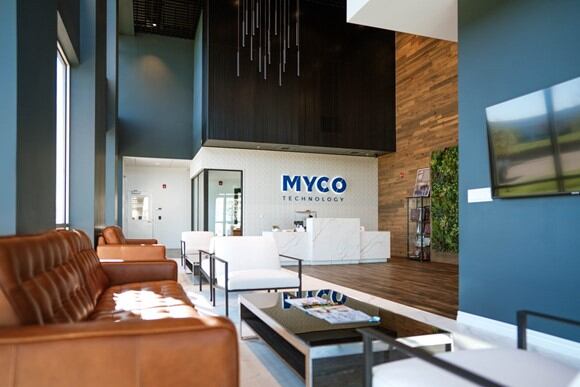The facility does two things, said the firm, which has been testing its ‘MyBacon’ whole cut mycelium meat product in a handful of stores over the past couple of years as it scales up production and establishes partnerships with mushroom growers.
“First, we have huge silos that contain hardwood chips which are cooked, inoculated with our special mushroom cells, and then left to grow in incubation environments for a few days to create a feedstock; they start to turn white as the mycelial cells start growing on the wood chips,” MyForest Foods CEO Eben Bayer explained to FoodNavigator-USA.
“This feedstock then goes to our growing facility on the same site, across the wall, or can be sent to any mushroom farm in North America or worldwide that wants to grow our product.
“At our facility in Green Island, we will deposit the woodchips into 50- or 70-foot long by four-foot-wide beds and grow slabs of mushroom meat about 2.5-3.5-inches thick over 11 days.”
The large white meaty slabs will then be harvested and transported to a new food processing plant about 25 miles north of Green Island in Saratoga Springs, where they will be sliced into bacon strips and go through a “boiling and brining process to infuse them with flavors and colors before coconut oil is dripped on to the slices and they are packaged,” said Bayer.
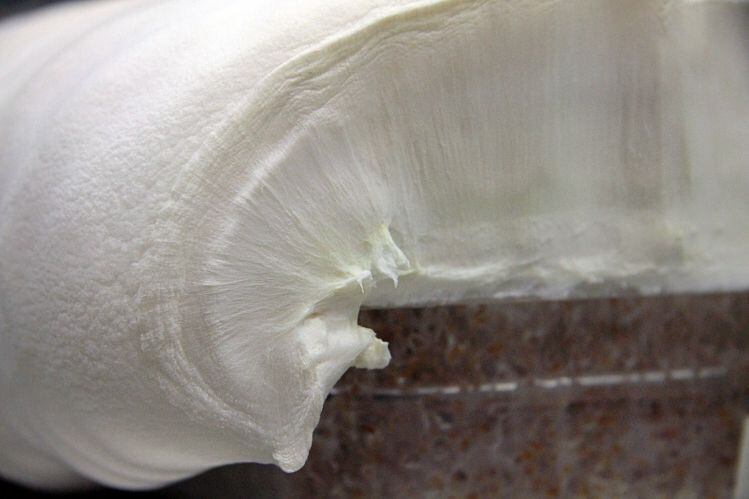
‘This process of working with partners means we can grow a lot faster with less capital’
He added: “We can produce our own meat from Swersey Silos, but we will also supply other facilities such as those run by our partner Whitecrest Mushrooms with the feedstock to grow their own mycelium meat.”
Whitecrest is building a dedicated facility to grow 3m lbs of mycelium meat using MyForest’s production process, he added.
“We've been running trials with Whitecrest since last fall and starting next year, we plan to have commercial shipments from them [of mycelium meat that will be further processed at MyForest’s Saratoga Falls facility].”
“This process of working with partners means we can grow a lot faster with less capital.”
Feedstocks: ‘Wood chips are really the lowest grade source of carbon you can find compared to sugars from corn, sugar beet or sugar cane’
But is this a more sustainable approach to growing fungi-based meat alternatives than growing mycelium in fermentation tanks fed with sugars?
Bayer acknowledged that energy costs are incurred at several stages of the process, from preparing the wood chips to produce feedstock, to maintaining the right growing environment for the mycelium (the mycelium don’t need light to grow, but they need air circulating and some moisture), to boiling the slices of fungi-based bacon downstream. But as a choice of feedstock, he argued, woodchips have some clear advantages.
“Wood chips are really the lowest grade source of carbon you can find compared to sugars from corn, sugar beet or sugar cane [which are used as a carbon source by some rivals making fermentation-based fungi meats].
“We’re talking about using byproducts from furniture making, for example, so it's not without impact, but it's preferable to using high quality sugar, and way cheaper, which makes our model highly advantageous. After we’ve harvested the mycelium meat, they [the woodchips] are really great as compost, but we’re looking at various bio-remediation program for this material as well.”
The go-to-market strategy: Go deep before going wide
Right now, MyForest is supplying a handful of independent retailers including Honest Weight Co-op in Albany, NY; Berkshire Food Co-op in Great Barrington, MA; and Cornucopia Natural Wellness Market in Northampton, MA, and will steadily add more as the new production comes online later this year, he said.
It is positioned in the meat case and priced at “about the same price as organic pork bacon,” said Bayer, who said these stores are currently “selling as much as we can make.”
“We’re working through local restaurants and the natural grocer channel, which fits with our brand and the kind of folks that might enjoy our product. We've just started adding more stores and we're continuing to see that kind of pull through.
“We’re also talking to some bigger logos, but it will take us a year to get the farm to capacity, so towards the end of next year, I'm sure we’ll be in national distribution.”
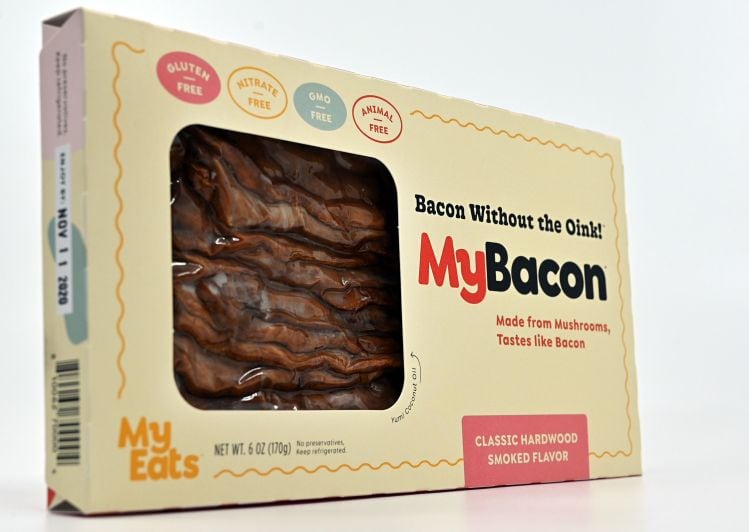
Product benchmarking
As for consumer feedback, he said: “We've benchmarked MyBacon against the current market leaders [in plant-based alternatives] Morningstar and Lightlife and against some of the new entrants, and we ranked number one on taste and texture, the greatest similarity to [animal-based] bacon and on purchase intent.”
While MyForest will be raising more money in the fall to support the development of a second wave of whole cut products [which will not be pork-alternatives] and to support plans to get into the European market, at under $50m, it has raised less than Meati Foods and Nature’s Fynd and made significant progress, he claimed.
“I'm just proud of how unbelievably capital efficient our team has been. What we’re doing is far cheaper than building fermenters.”

